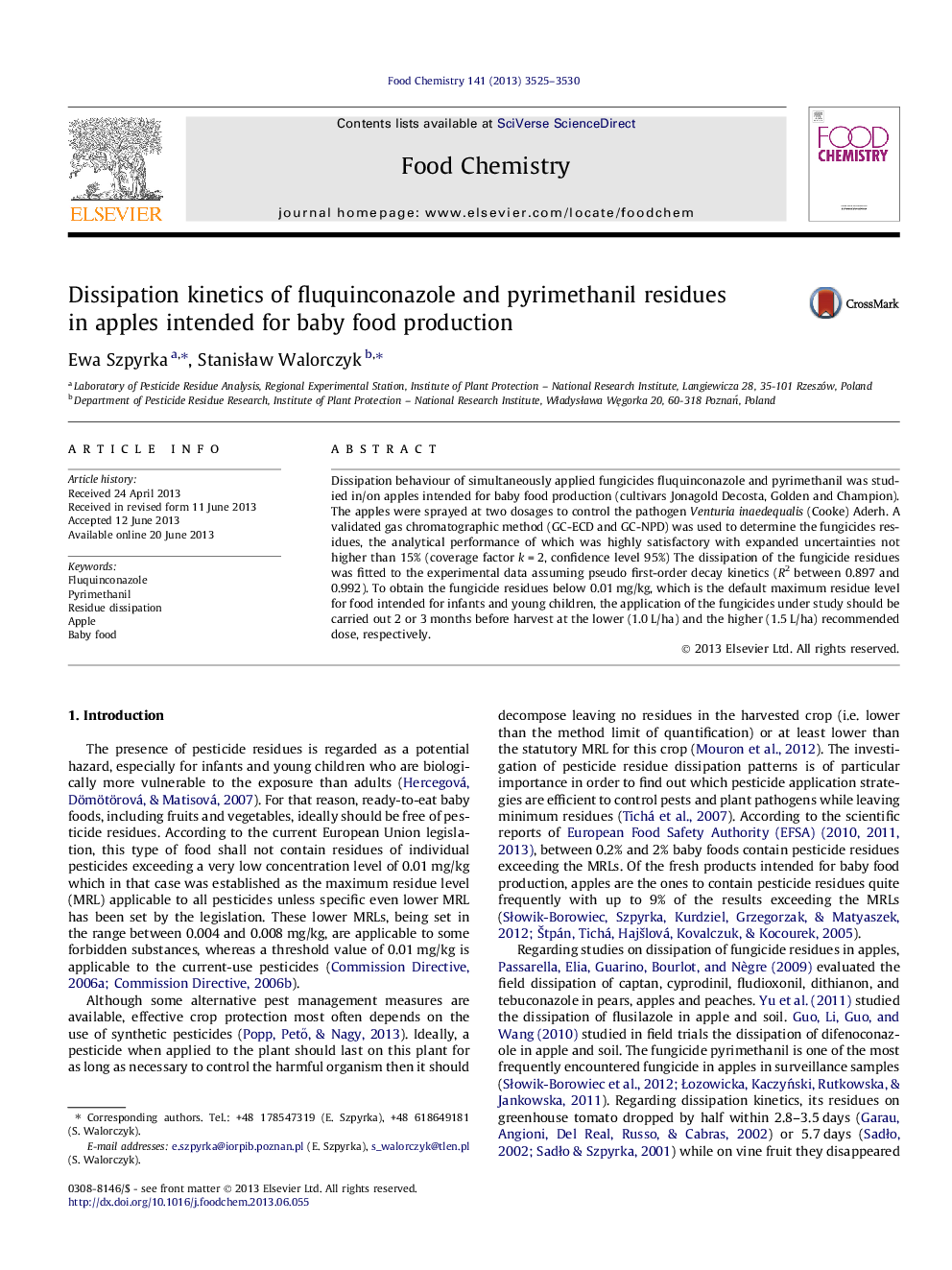| Article ID | Journal | Published Year | Pages | File Type |
|---|---|---|---|---|
| 10539815 | Food Chemistry | 2013 | 6 Pages |
Abstract
Dissipation behaviour of simultaneously applied fungicides fluquinconazole and pyrimethanil was studied in/on apples intended for baby food production (cultivars Jonagold Decosta, Golden and Champion). The apples were sprayed at two dosages to control the pathogen Venturia inaedequalis (Cooke) Aderh. A validated gas chromatographic method (GC-ECD and GC-NPD) was used to determine the fungicides residues, the analytical performance of which was highly satisfactory with expanded uncertainties not higher than 15% (coverage factor k = 2, confidence level 95%) The dissipation of the fungicide residues was fitted to the experimental data assuming pseudo first-order decay kinetics (R2 between 0.897 and 0.992). To obtain the fungicide residues below 0.01 mg/kg, which is the default maximum residue level for food intended for infants and young children, the application of the fungicides under study should be carried out 2 or 3 months before harvest at the lower (1.0 L/ha) and the higher (1.5 L/ha) recommended dose, respectively.
Keywords
Related Topics
Physical Sciences and Engineering
Chemistry
Analytical Chemistry
Authors
Ewa Szpyrka, StanisÅaw Walorczyk,
